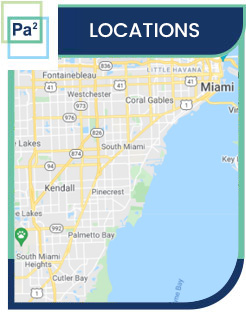Allergy Testing Specialist in Miami, FL
If you are showcasing symptoms of an allergy, and the over-the-counter medications for allergies are not helping, visiting an experienced allergist to get help will be the first major step in the right direction. Dr. Carlos J. Piniella MD offers comprehensive allergy testing at Piniella Asthma + Allergy. For more information, contact us or schedule an appointment online. We have convenient locations to serve you in Coral Gables, FL and Palmetto Bay, FL!


Table of Contents:
When should I get an allergy test?
How do you get tested for allergies?
Is allergy testing usually covered by insurance?
How allergy testing is done?
Step 1: Allergy Consultation
Step 2: Allergy Testing
Step 3: Allergy Treatment
How do you diagnose for allergies?
Can allergy medicine can help?
How allergy shots can help?
Does specialist care help?
What is sublingual immunotherapy?
Why allergists prescribe allergy tablets?
How to choose an allergist?
Piniella Asthma + Allergy Center provides skin and blood allergy tests for all types of allergens including food allergies and for all ages including pediatric allergy testing. During our skin test, an allergen is placed on your skin and monitored for redness, swelling, or itchiness which is a sign that you are allergic to that allergen. We also offer the patch test which has the allergen on an adhesive that is placed on your skin and reviewed 48 hours, 72 then 96 hours later. If you notice allergy symptoms such as a runny nose, sneezing, blocked sinuses, or itchy and watery eyes, call us or request an appointment online for allergy testing.
Allergy tests are available to help you find out the allergies you have to the things you eat, touch, or breathe. Allergy tests are normally done through skin tests or blood tests.
However, allergy tests are not always enough, you will have to have a doctor do a physical exam and a review of your medical history to help diagnose any allergies combined with an allergy test.
If you are showcasing symptoms of an allergy, and the over-the-counter medications for allergies are not helping, visiting a doctor to get help will be the first major step in the right direction. Your doctor should ask about your medical history during your visit with them, and from there if any signs and symptoms point to allergies, your doctor will request you complete a certain allergy test from an allergist or immunologist.
Skin tests are one of the most common allergy tests that patients receive. A skin test is done by pricking the skin with a needle that has a tiny amount of whatever you may be allergic to.
If you showcase a rash or if you are taking medication that can affect the results of the skin test, you may be given a blood test instead.
If you think you may have chronic hives, you do not normally need to have an allergy test completed. However, depending on certain circumstances, your doctor may suggest a test to make sure that the hives are not being caused by other conditions like a thyroid disorder.
Allergy tests involve one of two testing methods, which is a skin or blood test. They are done to find out what substance or allergen is causing triggers for an allergic reaction in the individual.
Skin tests are done due to their rapid results, and reliability, and they are usually less expensive than a blood test. Once your doctor refers you to an allergist or an immunologist, an appointment will be booked. During this appointment with the specialist, you will have a skin test or a blood test completed.
A Skin test is a small amount of whatever suspected allergen is placed on the skin or below the skin to see if the individual showcases a reaction. There are three different types of skin tests that can be completed.
1. Skin prick test
A Skin prick test is completed by placing a droplet of a solution that contains a possible allergen on the skin, this will be done with a series of scratches or needle pricks that will allow the solution to enter the skin.
2. Intradermal test
An Intradermal test is a small amount of the allergen injected under the skin. This test is much more sensitive than the skin prick test.
3. Skin patch test
A Skin patch test is completed by placing the allergen solution on a pad that is then taped to the skin for a certain time frame which is 24 to 72 hours.
Usually, allergy tests are covered by major medical insurance. To be sure that the allergy tests that you are being referred to complete are covered, you can contact your insurance provider and ask. However, if you do not have coverage from medical insurance to pay for the cost of an allergy test or the clinic you are using does not take your certain medical insurance for allergy testing, you can pay an “out-of-pocket” expense for the test, and get reimbursed from your insurance provider, or talk to the clinic to see if they provide financing available for such tests.
Step 1: Allergy Consultation
Your first step is to see a board-certified allergist-immunologist. You may be sent by your primary care physician, follow the recommendation of a family member or friend who is seeing an allergist, or find an allergist certified by the ACAAI in your area.
Your allergist will obtain a detailed medical history, examine you and evaluate your symptoms. Tests will be performed to find out the type of your allergic disease. Skin tests or allergy blood tests may be needed to find out the precise causes of your allergic symptoms.
This is the step where your show allergic symptoms and you get better.
If you have never been diagnosed with allergies but think you might have them or aren’t sure what causes your allergy symptoms, see an allergist.
Learn about the medicines that can help control allergy symptoms.
Immunotherapy is a preventive treatment for allergic reactions to substances such as grass pollens, house dust mites, and bee venom.
With the help of an allergist, symptoms usually can be prevented or controlled with a major improvement in quality of life.
Immunotherapy is a preventive treatment for allergic reactions to substances such as grass pollens, house dust mites and bee venom.
Allergists can now offer more relief options to some allergy patients: Allergy tablets may be prescribed to treat people who are allergic to ragweed and some grass pollen.
People with asthma or allergies need to see a doctor who’s an expert or specialist in treating asthma and allergies. Allergists are experts in treating asthma and allergies.
If you think you are showcasing signs or symptoms of allergies, and are wanting to get tested, contact Piniella Asthma and Allergy clinic today. Our experienced and board-certified allergist will be able to conduct a medical examination and provide an allergy test to determine the information they have received from the examination. We serve patients from Coral Gables FL, Palmetto Bay FL, Westchester FL, Brownsville FL, Kendall FL, Pinecrest FL, Richmond West FL, and Goulds FL.

Additional Services You May Need
▸ Asthma
▸ Allergy Testing
▸ Food Allergies
▸ Immunotherapy
▸ Patch Testing
▸ Allergy Treatment
▸ Pediatric Asthma Specialist
▸ Pediatric Allergist
▸ Insect Bite Allergy
▸ Drug Allergy
▸ Seasonal Allergies
▸ Skin Allergy

Additional Services You May Need
▸ Asthma
▸ Allergy Testing
▸ Food Allergies
▸ Immunotherapy
▸ Patch Testing
▸ Allergy Treatment
▸ Pediatric Asthma Specialist
▸ Pediatric Allergist
▸ Insect Bite Allergy
▸ Drug Allergy
▸ Seasonal Allergies
▸ Skin Allergy


